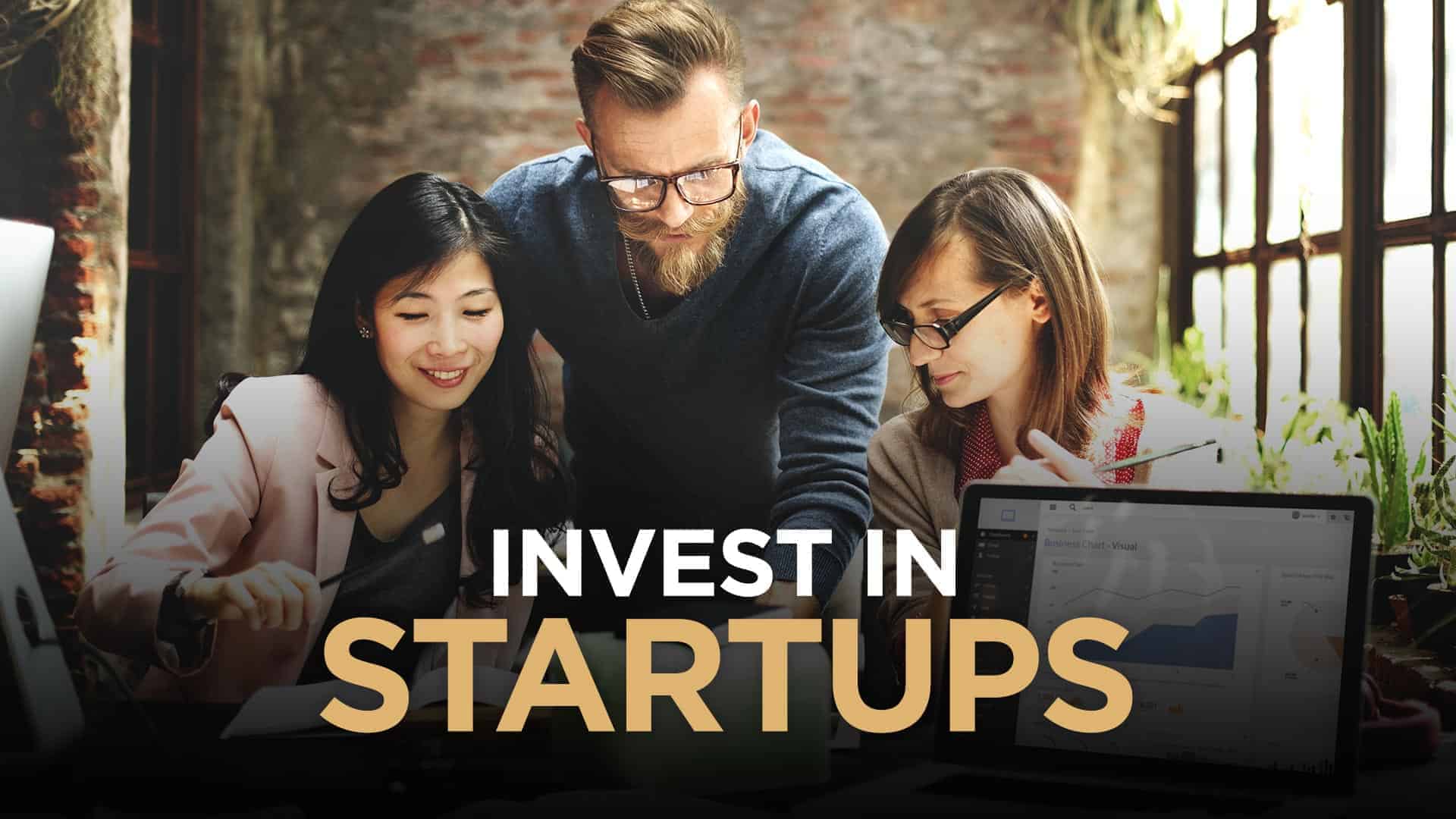Are you looking to invest in startups but you aren’t sure what to look for? How do you determine if a startup is a good investment idea? How do you know it’s the right thing for you?
When you want to invest in startups there are plenty to choose from. Almost all startups need money. That’s why it looks like a promising investment sector too many.
It seems so easy, find a startup. Invest your money. Watch them grow and multiply your money. But, in reality, it isn’t quite that easy.
Not every startup will be the next Uber. Not every startup succeeds and grows rapidly. Often it’s hard to tell if their product and offer are any good.
That’s a problem because if you are investing in a startup you want to make sure it pays off. You want to get returns on your investment sooner or later. Investing in the wrong startup can be a risk.
And there are also other factors you have to consider before you put your money into anything. So before you go ahead and invests your money into a startup, check for these 5 crucial things first.
1. Is There A Hungry Market for Their Product?
Before you invest in startups you want to make sure there is an actual market for their product or service.
Let’s imagine you can choose between startups. One has an advantage in capital, on has the best product or service, another one has the best team. Or maybe they have the perfect timing or the latest technology. Which one would you choose?
If I would invest in a startup I would always choose one thing: A hungry market. I would choose that every. single. time. Click To TweetTheir product or service might change, but a hungry market will always buy from them.
So many startups fail because they focus so much on their product or service. But they completely forget about their customers. They focus more on their own needs than on the needs of the marketplace.
They put all this effort into building the perfect product…that nobody wants. Instead of their product, look at their offer. What is the irresistible offer that they bring to the marketplace?
An offer contains their product plus the value. If the perceived value is high enough people will want to by. You can imagine the offer almost like a bait. Like if you go fishing, you want to choose the right bait. So the fish would actually bite. Using a stone as a bait won’t do you any good. You have to understand what they want.
Why Is The Market So Important?
So many startups make one mistake. They offer what they think the market wants. Instead of finding out what the market actually wants.
You only want to invest in startups that actually have an irresistible offer of some kind. It should be more than a crazy idea in their mind.
Save yourself from investing in startups that spend years on things that nobody wants to buy. As sad as it is, that happens too often. 8 out of 10 businesses fail after 20 years. Half a million businesses are created every month. 30% of those go out of business within two years.
What to Look for in a Market?
You also want to check how big the market is before you invest in startups.
Is it a very local market only in the direct neighborhood? Or is the market the whole world?
Don’t get me wrong the market doesn’t have to be huge for them to be successful. But it has to be some good size so they can expand later. Simply put, is the market big enough so their offer is scalable? What are the chances of this offer getting bought now and also in the future?
And finally, when it comes to invest in startups, there is one more thing about the market. How saturated is it? Are they targeting an existing market with lots of competition? Or a completely new one?
What if their chosen market is very competitive? Do they have a defining factor that makes them different? How is their solution different from existing ones and is there a market that needs that? There is also the question of how powerful their competition is.
I once had a guy tell me he wants to start a coffee company and compete with Starbucks. How can a small startup compete with a huge chain?
Of course, the founders are very passionate about their ideas. But you have to stay cool and check if their business actually makes sense.
What to do if you invest in startups that market to a completely new market? You have to make very educated guesses if it is possible. Will the market be big enough? Is the crowd hungry for this?
2. Do They Have Some Money Already?
When you invest in startups, you don’t want them to fully rely on only your money.
If they can only start out because of your investment, that’s actually very dangerous. If they need your money so urgently, the founders aren’t entrepreneurs yet.
Making money from business takes time and effort. If they expect to find one single investor (you) and suddenly make all the money…they don’t understand what it means to have a business.
Building up a successful business needs time, effort and money. You don’t create a startup because you want to work less and hate your job. If you do that, your business will fail.
That’s why I advise all my students to take care of their cash flow needs first. First, they need a stable income. Only then they should even think about becoming an entrepreneur.
So, if you want to invest in startups what out. Pick those that have a great work ethic and are resourceful enough to generate money – before they are looking for investors.
There is nothing wrong with looking for investors, but it can’t be their income stream.
How resourceful are they?
Their resourcefulness to getting money shows you what they are willing to do in order to succeed. Do they tilt because an idea didn’t work? Or are they looking for solutions and create results?
Believe it or not, there are startup founders that only want to put their money in after the startup has reached in size. They don’t have any skin in the game. Rather, they try to build their business and get wealthy by a miracle.
They have this idea and think it will make them rich. But a business without money is just an idea…it’s not even a startup.
So don’t get swooned owner by fancy looking business plan and market analysis. Those are great things to have but if there is no starting capital, how will they succeed?
I’m very careful about such things. You don’t want them to run off with your money. You want to invest in startups that are resourceful enough to have some money already. Your investment might help them to get more scale.
Being resourceful also means they don’t lose hope after hearing no several times. They have the stamina to go on because they know there is a demand for their product or service.
3. Are Their Team Members Complementing Each Other?
The next crucial thing you want to look for before you invest in a startup is their team.
Before the investment, you will likely get in contact with the founders of the startup. You will discuss the strategy, business plan and other things.
But I highly advise you to also have a look at their team. Who else is working on the startup? What skills do they bring to the table? And, likely most important, how do the founders lead their team?
Are their skills working together? Do the founders mentor the teammates? Do they really have successful chemistry?
All these are pointers to look out for. The team is an important metric to measure the success of a startup.
But, you only want to look at this, after you’ve checked the market! Again, the best team in the world won’t help, if there is no hungry market for the product.
If they have the market and a great team, those are good signs to invest in startups.
Some startups have quite small teams because they are saving on costs this way. But they absolutely need people in all the key positions, so the whole business can actually run.
What Does a Great Team Look Like?
Their team has to be able to execute. Too many founders try to get everything done themselves and give no trust to their team. Instead of delegating they work tons of hours to get everything done.
When really, all their team members should be experts in their field and get the job done themselves. They should also have some operating systems in place already. That shows they are serious about this business. Do the founders have the vision while the team is taking big parts in executing that vision?
Another very important thing: don’t invest in startups that don’t have an expert on their niche on their team. Let’s say the startup is a lead generation agency. But nobody on the team ever worked with lead generation. All they do is guessing how it works…How likely will that team succeed?
A well-built team should have the skills that the founders lack. They are balancing each other’s strengths and weaknesses. You don’t want to invest in a startup where all team members have the same skills. It means they have huge weaknesses too.
4. Did They Create Results Already?
This is another great point to look into before you invest in startups. Did they already get in contact with their market somehow?
Are the customers already engaging in with the product? Maybe there were some test runs and the testers are giving feedback. Or maybe the founders did a survey of what customers expect a certain product to do.
Looking at this shows you how serious the founders are. Do they just have ideas or are they willing to execute? Are they still working on the basic concept or are they already developing tangible results?
Are they committed to making this happen and work out for them? Or is it just an idea and if it doesn’t work they jump onto the next idea?
If you get in contact with them and they want to win you over as an investor,
watch out if they can present any real data. Does the data support their idea? These early calculations are a great proof of concept.
So what does a promising startup look like? They have a hungry market and some data collected already. If they have the data but the market is non-existent or too small you don’t want to put your money there.
When it comes to data, also make sure that their measuring is actually realistic. Some startups run into the trap of measuring too much. Or the use numbers too early. While data is important, it’s not the only factor that determines their success (and as a result the success of your investment).
How do Others React to their Idea?
A great way to see if the startup’s offer creates the desired results is this:
Show it to strangers on the street and see their reaction.
If they say “ok, yeah that’s good” then the idea actually isn’t good! You want them to go “wow this is great, where do I buy.”
If the offer can’t win over people, it won’t stand a chance in the marketplace.
4. Are You Actually Ready?
The final thing you want to consider before you invest in startups is a little bit different.
It’s less about the startup, the founders, the product or even the market…
It is about you. Are you actually ready to invest in startups?
To invest in startups might sound like a good idea but it’s only one investment type of many, many more. So, ask yourself why you want to invest in startups. Click To TweetAre you actually passionate about startups? Are you an expert on the field? Or did you just hear about other people who successfully invested in startups? Are you looking for a quick way to get rich?
The problem with that is that, if you suddenly jump into investments without knowing anything about it, you are taking huge risks.
You risk making a mistake and losing all your hard-earned money. I’m not saying investments are a bad thing…I’m saying investment without knowledge is not a very smart thing to do.
See, wealthy people, invest in what they understand. And they have their ways of checking and evaluating if an investment is a good idea.
If you don’t know how to successfully invest in startups – and only do it because it worked for others – reading a few blog posts about it won’t help you much. So what should you do?
How To Prepare Yourself for Any Investment
Before you invest in startups – or do any other investment really – you want to do a few things.
First, you can’t invest if your daily cash flow needs aren’t met. Meaning, if you don’t have enough money to pay your bills, you aren’t in a position to go out there and start investing. Raise your income first (have a look hat I teach about high-income skills).
Now you want to be in a position where you can invest at least a few hundred bucks. And lastly, really understand which investment type suits for you. What do you really like? Is it really startups? Or stocks, or real estate?
I personally love two types of investments. Investing in myself and real estate. Why? Because I understand it. I would never advise anyone to invest in something they don’t understand.
What if I told you there is a chance to learn the investment strategies of the rich?
My fans and students kept asking me about investments. When to do it, how to do it right and so on. Exactly for that reason, I’m offering a once in a lifetime event. What is it about? It’s called “Secrets Of The Rich” and it will take place from February 23rd to 24th.
The rich have these crazy strategies that give them stable returns – sometimes up to 24%. Those investments are low-risk and high-return. But you can’t find it in any book and it’s not taught at seminars. At least until now.
The event is really a once in a lifetime chance. It’s unlikely that it will ever be repeated. If you want to educate yourself on investing as the rich do, this is your chance.
Unfortunately, the event is now sold out. But I have a special offer for you. You can get lifestream access that comes with a full recording too. This way you can learn the investment strategies of the rich, even if you missed out on the seats.










